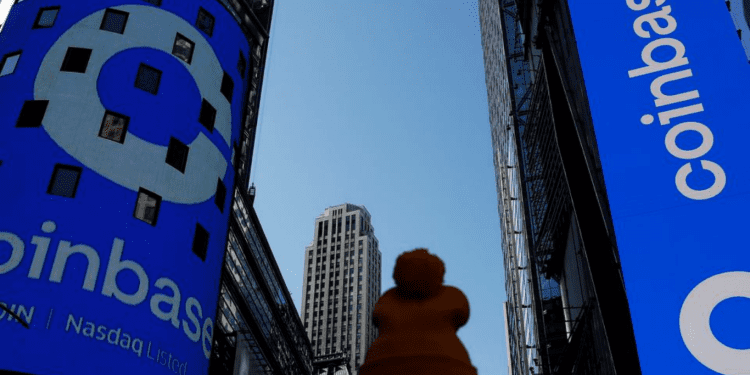- The U.S.-based crypto exchange, Coinbase, has reached a $100 million settlement with the NYDFS over its compliance failures.
- The crypto exchange platform will pay a $50 million penalty and another $50 million to strengthen the internal compliance programs.
- According to DFS’ investigations, the crypto company needed to conduct a thorough background research on its new customers.
The New York Department of Financial Services (NYDFS) revealed on Wednesday a $100 million settlement with the U.S.-based cryptocurrency exchange, Coinbase, following the failures in its compliance program.
The settlement included a $50 million fine that the crypto exchange must pay to NYDFS and another $50 million to support its abilities to comply with financial regulations such as KYC rules and transaction monitoring.
The Coinbase Chief Legal Officer, Paul Grewal, noted in a statement:
“This agreement includes a $50 million penalty and a separate commitment from Coinbase to invest $50 million in our compliance program over two years.”
The settlement comes after the DFS investigated Coinbase and its anti-money laundering (AML) compliance programs. The investigation highlighted loopholes in the exchange’s customer due diligence (CDD) and transaction monitoring procedures. The AML program was primarily found to be violating the New York Banking Law and DFS’ virtual currency, money transmitter, and cybersecurity regulations.
The financial regulator has also noted negligence, reporting suspicious activities, and sanctions compliance systems deemed inadequate for the financial service provider of the exchange’s size and complexity.
The DFS’ investigation findings
However, Coinbase acquired its DFS license in 2017, which enables it to act as a virtual currency and money-transmitting business in New York. Following DFS’ investigations, it was revealed that Coinbase’s KYC program was “immature and inadequate” in that it treated its customer’s requirements as “simple check-the-box exercises.”
Additionally, the crypto firm was unable to handle its transaction monitoring alerts. By 2021, these failure alerts accumulated a growing backlog of more than 100,000 unreviewed alerts. The inability to review the transaction alerts led to the collapse of timely investigation and filing of SARs as required by the law. The research by DFS found numerous examples of SARs filed months after the exchange knew about the suspicious activities.
These inadequacies resulted in various allegations of criminal misconduct, including underage sexual material, suspected trafficking of narcotics, fraud, and money laundering. Adrianne Harris, DFS’ superintendent, noted that “Coinbase failed to build and maintain a functioning compliance program that could keep up with its growth. In the end, the company’s compliance failures exposed it to possible criminal activity requiring immediate action, including installing an independent Monitor.”
These claims come after the world’s second-largest crypto exchange FTX, collapsed, leaving several customers in shock. Many other crypto exchanges and companies filed for bankruptcy protection in the past year due to market turmoil in the industry.
However, the New York state and Federal regulators have kept searching for better ways of regulating the digital asset industry. In the absence of an extensive Federal regulatory structure, the New York state has taken proactive measures regarding its state-level regulation, including adopting the BitLicense framework and its moratorium on in-state crypto mining activities that it acquired recently.
Various users have come out critiquing the measures and stating that they are growth inhibitive. In contrast, other users have stipulated that they are necessary to shed some light on the recent events occurring in the digital asset industry. However, Grewal noted the importance of working alongside regulators so that the customers can feel safe and protected while using the platform.
Coinbase’s settlement with DFS’ has emphasized the need for firms operating in the digital asset ecosystem to implement and maintain strict compliance programs such as the AML program. AML programs have great importance in any widely unregulated industry; more rigorous AML programs can increase the industry’s legitimacy when the industry faces issues of uncertainty.














